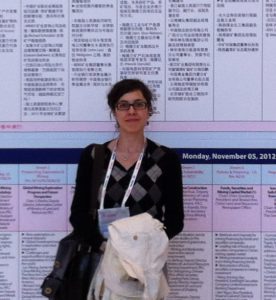Memo #195
By Pascale Massot – pmassot [at] interchange.ubc.ca
 China played a key part in the recent collapse of the iron ore pricing regime. This was an unintended consequence of a mix of bold negotiating tactics and competing domestic interests, which made it difficult to implement a consistent international procurement policy. Chinese actions destabilized global market institutions and paradoxically caused their liberalization.
China played a key part in the recent collapse of the iron ore pricing regime. This was an unintended consequence of a mix of bold negotiating tactics and competing domestic interests, which made it difficult to implement a consistent international procurement policy. Chinese actions destabilized global market institutions and paradoxically caused their liberalization.
The price for iron ore had, for decades, been settled through annual closed-door negotiations between Japanese steel makers and Australian and Brazilian iron ore producers. China started importing more iron ore than Japan by the early 2000s. Long-term iron ore negotiations were led by the China Iron and Steel Association (CISA) and Bao Steel, and had initially followed Japan’s lead, until CISA decided to refuse the 2009 benchmark price.
Australian and Brazilian producers were not in a hurry to sell and were keen to do away with benchmarking in 2009. At the same time, smaller Chinese firms ignored the government’s call to hold off on purchases. The result? The iron ore benchmarking system fell apart. Iron ore prices are now settled in a mixture of ways, including via newly created spot trading platforms in Beijing and Singapore. The Chinese negotiators did not appear to have expected, let alone hoped, for such a result.
Fast forward to the fall of 2012. Large state-owned Chinese fertilizer companies had negotiated long-term prices with big global potash producers for years (biannual negotiations recently replaced annual negotiations). This summer they did not agree to such a contract. The global potash industry is still waiting for a new agreement. China’s large domestic potash industry (fourth-largest global producer, but dependent on imports for more than 50 per cent of its annual needs) is waiting until its reserves are low while asking for a price reduction in global markets.
It may be that China yet again, through strong-handed negotiating tactics, ends up unintentionally destabilizing a long-term pricing system.
These negotiating patterns, coupled with China’s push for diversification of supply more generally, are ironically positioning China as a catalyst for an increased liberalization of global commodity markets. An interesting twist of fate for a hybrid economy.
About the Author:
Pascale Massot is a PhD Candidate in the Department of Political Science at The University of British Columbia. Memo #30.
Links:
- Chinese State Investments in Canada: Lessons from the Potash Saga, Asia Pacific Foundation of Canada, January, 2011. (By Pascale Massot)
- Are fears of Chinese investment in Canada overblown?, The National Conversation on Asia, September, 2012. (Featuring Pascale Massot)
